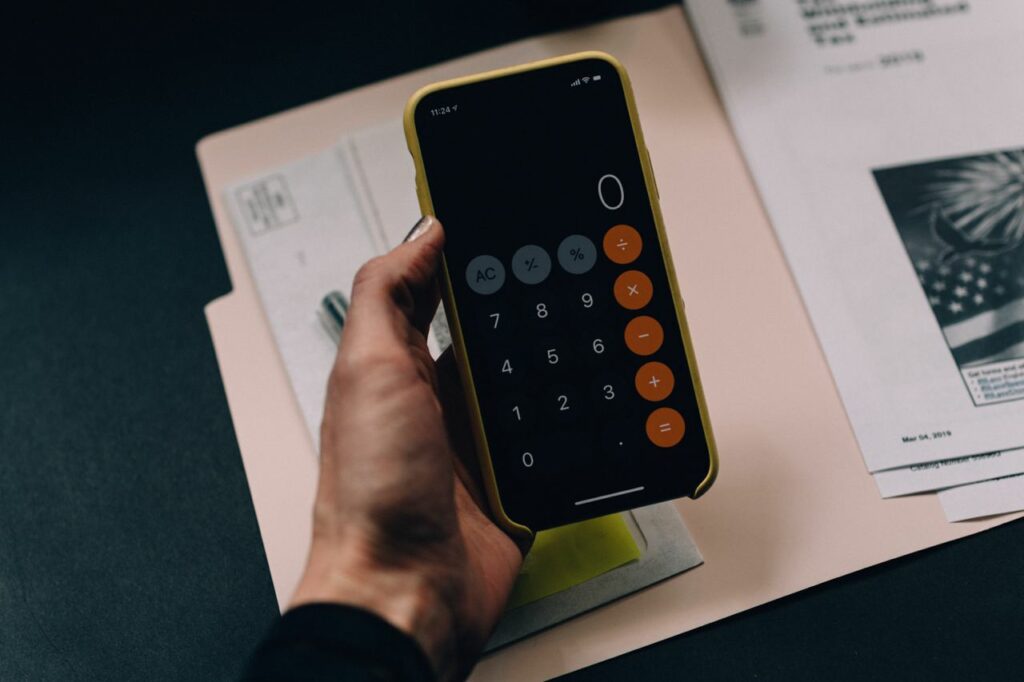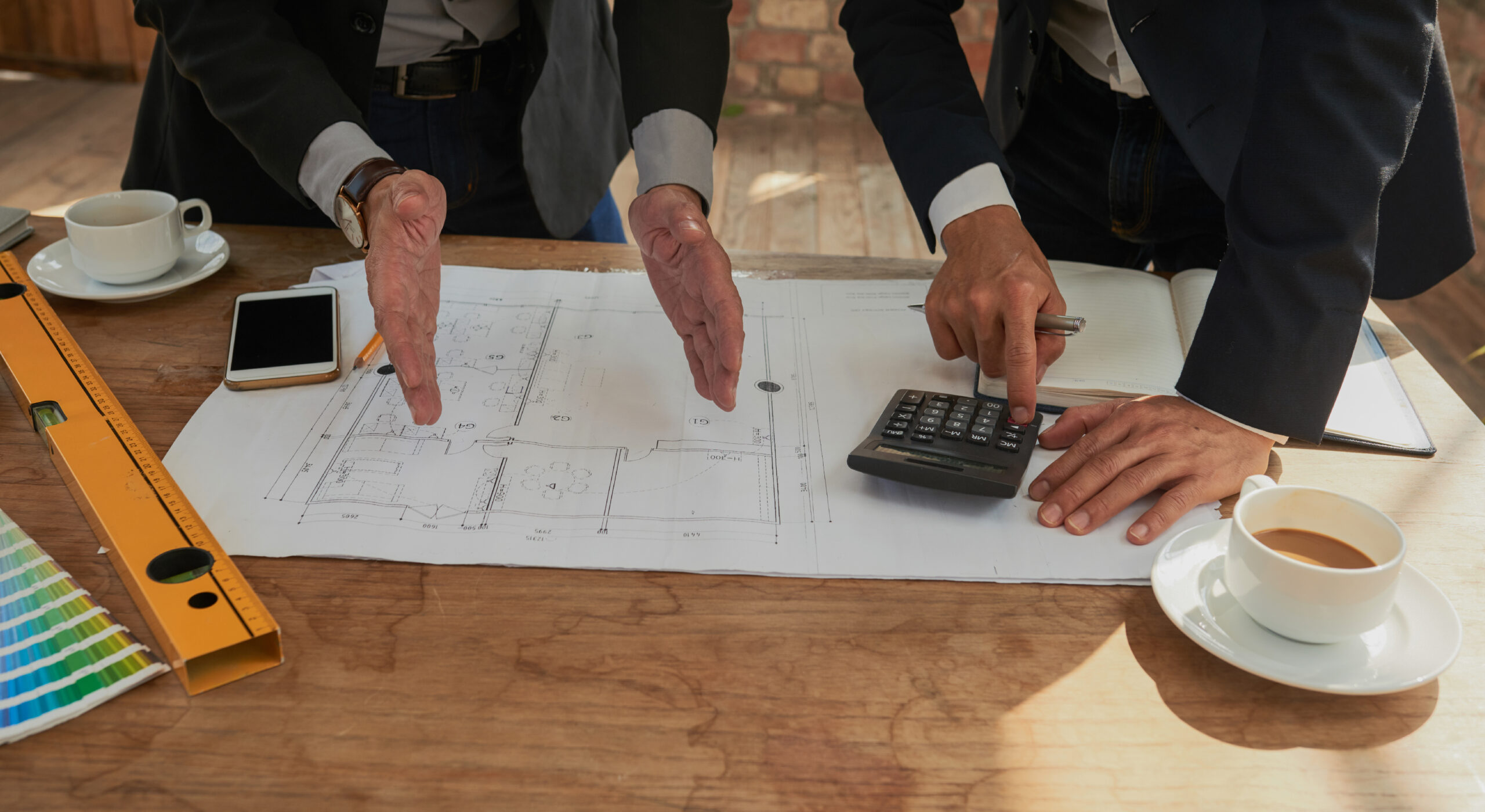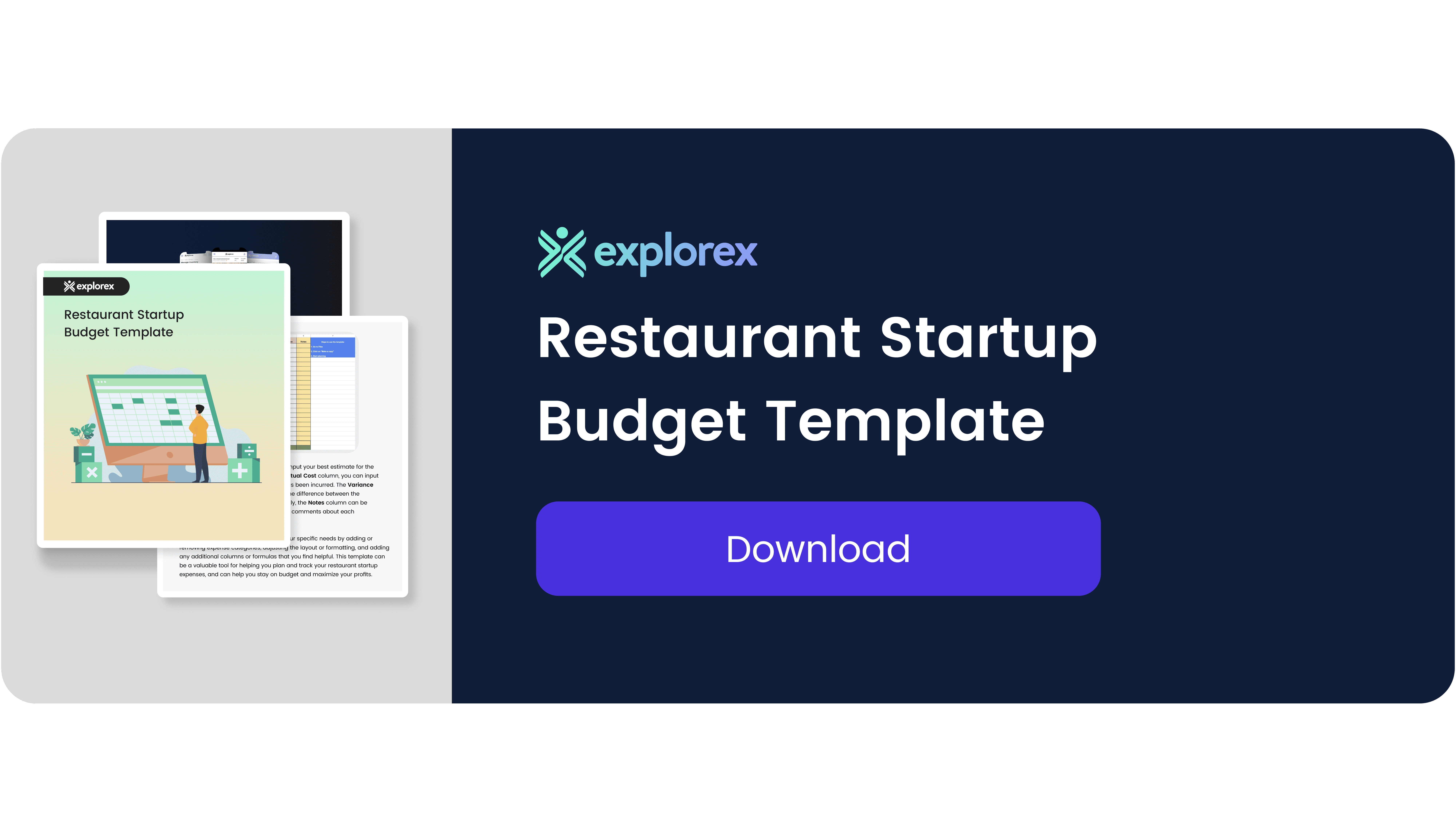Starting a restaurant can be an exciting and fulfilling endeavor, but it can also be a daunting task, especially when it comes to finances. As with any business, opening a restaurant requires careful planning and budgeting to ensure its success. It’s important to understand that the startup costs for a restaurant can vary widely depending on several factors, including the restaurant’s size, location, menu, and concept.
Creating a comprehensive budget is crucial for any restaurant startup to ensure that all expenses are accounted for and to avoid any surprises down the line. A well-planned budget can also help secure funding from investors or lenders, as it demonstrates a clear understanding of the financial requirements of the business.
In this guide, we’ll break down the main expenses involved in opening a restaurant, including equipment, supplies, rent, permits, marketing, and labor costs. We’ll provide tips on minimizing these costs and creating a realistic budget for your restaurant startup. By the end of this guide, you’ll have a better understanding of the financial commitment required to open a successful restaurant and how to create a comprehensive budget that will set you up for success.

To successfully open a restaurant, it’s important to understand that preopening expenses are just the tip of the iceberg. But what are Preopening expenses?
Preopening expenses are one of the critical components of restaurant startup costs that require careful planning and budgeting. These expenses may include the following:
-
Legal fees:
Legal fees are an essential preopening expense for restaurant startups as they help ensure the business is legally compliant and protected from potential legal issues. The cost of hiring a lawyer to assist with legal matters related to opening a restaurant may vary depending on the complexity of the legal work involved.
For example, hiring a lawyer to help with business registration and obtaining permits and licenses may cost a few thousand rupees, while lease negotiation and contract drafting may cost significantly more.
-
Permits and licenses:
Obtaining the necessary permits and licenses from local and state authorities can be a time-consuming and expensive process. The costs may vary depending on the location and type of restaurant. Examples of permits and licenses include health department permits, liquor licenses, and business registration fees.
For example, a restaurant in Bangalore may require a food service establishment permit, a food protection certificate, a sidewalk cafe permit, a music license, and a cabaret license, among others. Each of these permits and licenses comes with a fee.
-
Insurance:
Restaurant owners need insurance coverage to protect their businesses against unforeseen events such as property damage, liability claims, and employee injuries. The insurance cost may vary depending on the size and type of restaurant.
For example, a small café may only require basic insurance coverage, such as general liability and property insurance. However, a larger restaurant with a full bar may need to invest in additional insurance coverage, such as liquor liability insurance, worker’s compensation insurance, and cyber liability insurance.
-
Market research:
Conducting market research is essential to determine the feasibility of the restaurant’s location, identify the target audience, and analyze competitors. This may involve hiring a market research firm or conducting surveys, focus groups, and other forms of research.
For example, a restaurant owner in a new area may hire a market research firm to assess the local market and provide insight into customer preferences, spending habits, and dining trends. The research may include analyzing data on demographics, competition, and market demand for specific types of cuisine.
These costs can add up quickly, and failure to account for them in the startup budget can result in financial stress and jeopardize the restaurant’s success. Therefore, creating a comprehensive preopening expense plan that considers all the necessary costs associated with starting a restaurant is essential. This will ensure that the restaurant is legally compliant and give a clearer understanding of the total startup expenses and how to allocate the resources efficiently.

Next, Some of the other major expenses that a business owner must consider are:
-
Cost of equipment and furnishings:
The equipment and furnishings required for a restaurant can vary depending on the establishment’s size, cuisine, and style.
For example, a small coffee shop may only require a coffee maker and a few tables and chairs, while a fine dining restaurant may require high-end kitchen equipment and luxury furniture.
-
Dining room furniture:
This includes tables, chairs, booths, and other decors. It’s important to consider the style and ambiance of the restaurant when selecting dining room furniture.
For example, a fine dining restaurant may require luxury furniture, while a casual eatery may only need basic tables and chairs.
-
Kitchen equipment:
This includes stoves, ovens, refrigerators, and other appliances. It’s important to consider ongoing maintenance costs for the equipment to ensure it operates properly and prevent any breakdowns that could impact the business’s operation.
-
Technology expenses:
When budgeting for equipment and furnishings, it’s crucial to include point of sale (POS) systems, digital menu boards, and online ordering platforms. Technology can improve the efficiency and speed of the restaurant’s operations, but it can also be a significant expense.
-
Costs of construction and renovation:
Whether you are building a new restaurant from scratch or renovating an existing space, you will need to factor in the cost of permits, construction materials, labor, and any necessary equipment or fixtures.
For example, if you are renovating an existing space, you may need to hire a contractor to help with demolition, plumbing, electrical work, and other renovations. This can involve costs such as permits, materials, and labor expenses.
-
Inventory and supplies:
Food and beverage costs will vary depending on the type of cuisine and quality of ingredients, while small wares such as plates, glasses, and utensils are necessary for serving guests. Linens and cleaning supplies are essential for maintaining a clean and sanitary dining environment.
One way to minimize inventory and supply costs is to establish relationships with local vendors and wholesalers who can offer bulk pricing and discounts. Careful inventory management and tracking can also help to reduce waste and prevent over-ordering.
-
Rent, utilities, maintenance, and repairs:
These are recurring costs that restaurant owners must factor into their budget. Rent can be a significant expense, especially in high-traffic areas. Negotiating a lease agreement that fits within the allocated budget is essential. Utilities, maintenance, and repairs are also ongoing expenses that must be considered to keep the restaurant running smoothly and safely.
-
Labor costs:
Restaurant owners should consider the size of their staff, the number of hours they work, and the wage rate they will receive. It’s essential to ensure that labor costs are within the allocated budget, as it could negatively impact the overall profitability of the restaurant.

Understanding the various expenses involved in opening and running a restaurant is crucial to creating a comprehensive budget. Restaurant owners must prioritize expenses, minimize costs where possible, and allocate funds appropriately to ensure the restaurant’s success.
Here are some tips to help with this:
-
Forecast sales:
It’s essential to have a good understanding of your restaurant’s sales potential. Accurately forecasting sales can help you plan your inventory needs, staffing requirements, and other expenses.
-
Monitor expenses:
Keep a close eye on all expenses, including food costs, labor costs, and overhead expenses. Use accounting software or tools to track expenses and analyze data.
-
Optimize menu offerings:
Evaluate menu offerings and make adjustments to eliminate items that are not popular and replace them with more profitable items. Consider the cost of ingredients and the profit margin when making menu changes.
-
Reduce waste:
Reduce waste by properly managing inventory, minimizing overproduction, and controlling portion sizes. Implement inventory management systems and train staff on proper portioning.
-
Negotiate with suppliers:
Negotiate with suppliers to get the best prices on ingredients and supplies. Consider forming partnerships with local farmers or suppliers to get fresh produce and ingredients at a lower cost.
-
Train staff on cost control:
Train staff on cost control strategies and best practices. Encourage them to be mindful of waste and to take care of equipment and supplies to minimize replacement costs.
Opening a restaurant is a significant financial investment that requires careful planning and budgeting. Ignoring the importance of creating a comprehensive budget can lead to overspending and a lack of profitability, ultimately leading to the business’s failure.
It is essential to remember that creating a realistic budget for a restaurant startup is not a one-time task. It requires ongoing monitoring and adjustment to account for unexpected expenses or changes in the business environment. Therefore, working with a financial advisor or accountant is crucial to ensure that the budget remains accurate and effective.
Careful budgeting and financial planning are critical components of the success of a restaurant startup. By understanding and accounting for all the expenses associated with opening and operating a restaurant, restaurant owners can control costs, maximize profits, and set themselves up for long-term success.





